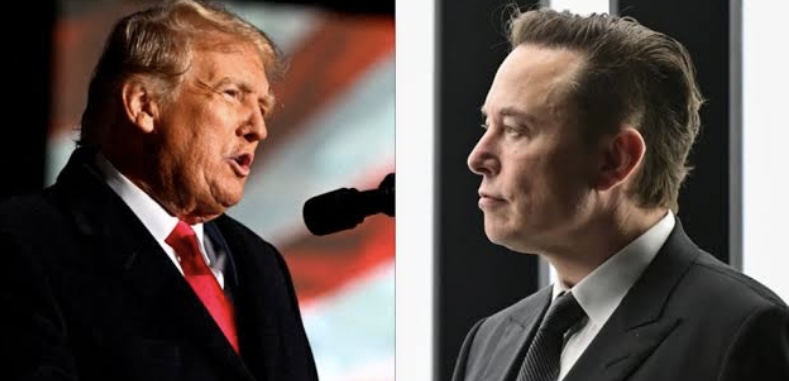NFL
JUST IN: Elon Musk’s Tesla Sends Bombshell Letter to Trump Administration, Warning of Severe Economic Fallout from Tariffs as Shares Plunge

Tesla Warns Trump Administration About Tariffs as Stock Price Declines
In a striking move, Tesla has sent a formal letter to the Trump administration, warning that proposed tariffs could severely impact the company’s manufacturing costs, supply chain, and global competitiveness. The warning comes as Tesla’s stock price sees a sharp decline, dropping approximately 5% following concerns over tariffs and declining vehicle registrations in key international markets.
Tesla’s Letter to the Trump Administration
The letter, sent to U.S. Trade Representative Jamieson Greer on March 11, 2025, details Tesla’s concerns about potential retaliatory tariffs on imported materials and components necessary for its electric vehicle production. The company emphasized that its supply chain relies on global sourcing for critical materials such as lithium, cobalt, and nickel—essential for battery production.
Tesla’s leadership argued that increased tariffs would not only raise the cost of production but also make U.S.-manufactured vehicles less competitive in foreign markets. The company also pointed out that past tariff measures had already led to increased expenses, making it harder to maintain profitability while keeping vehicle prices affordable for consumers.
Economic Impact and Investor Reactions
The stock market reacted quickly to the news, with Tesla shares dropping around 5% in response to the tariff concerns. Analysts believe investors are worried that higher production costs could eat into Tesla’s margins, at a time when the company is already facing competitive pressures from domestic and international electric vehicle manufacturers.
Additionally, reports indicate that Tesla has experienced a decline in vehicle registrations in key European markets, compounding concerns about future demand and profitability. With trade tensions escalating, Tesla’s warning highlights broader concerns in the automotive industry, particularly for companies dependent on global supply chains.
The Bigger Picture: U.S. Trade Policies and the Auto Industry
Tesla’s letter underscores growing tensions between the U.S. government’s trade policies and the interests of major American manufacturers. While the administration has argued that tariffs will help protect domestic industries and jobs, many companies—especially those with international supply chains—worry that higher import costs will ultimately harm their operations and global competitiveness.
Other automakers, including Ford and General Motors, have previously raised similar concerns about trade policies affecting costs and supply chains. However, Tesla’s warning stands out given its reliance on advanced battery technology and its push to maintain leadership in the EV market.
What’s Next for Tesla and U.S. Trade Policy?
With Tesla’s letter now in the hands of policymakers, the response from the Trump administration will be closely watched. If the government proceeds with tariffs, Tesla and other automakers may have to explore alternative sourcing strategies or pass costs on to consumers—neither of which is an ideal outcome for the industry.
For now, investors remain cautious, and Tesla’s stock volatility highlights the uncertainty surrounding trade policies and their long-term impact on American manufacturers. As the debate over tariffs continues, Tesla’s warning serves as a clear signal that companies heavily reliant on international materials and markets could face serious challenges in the months ahead.
⸻
Would you like any refinements or additional details?











